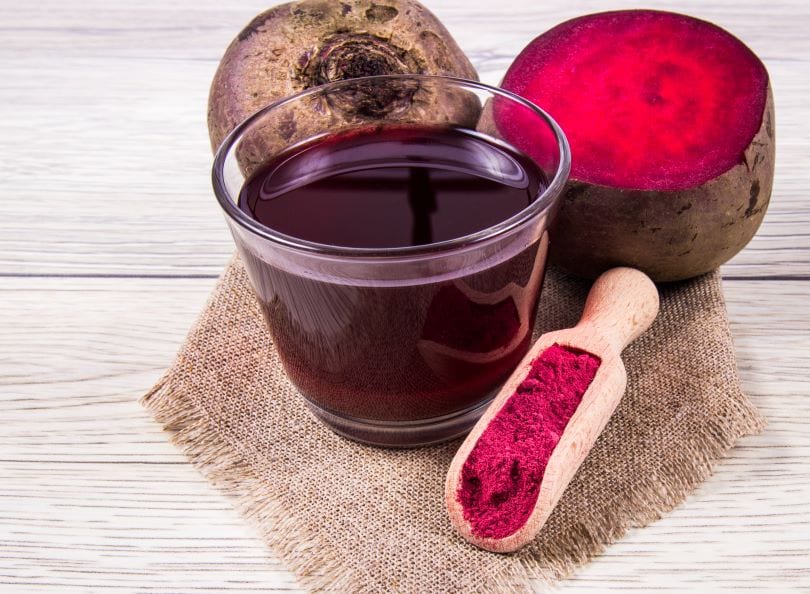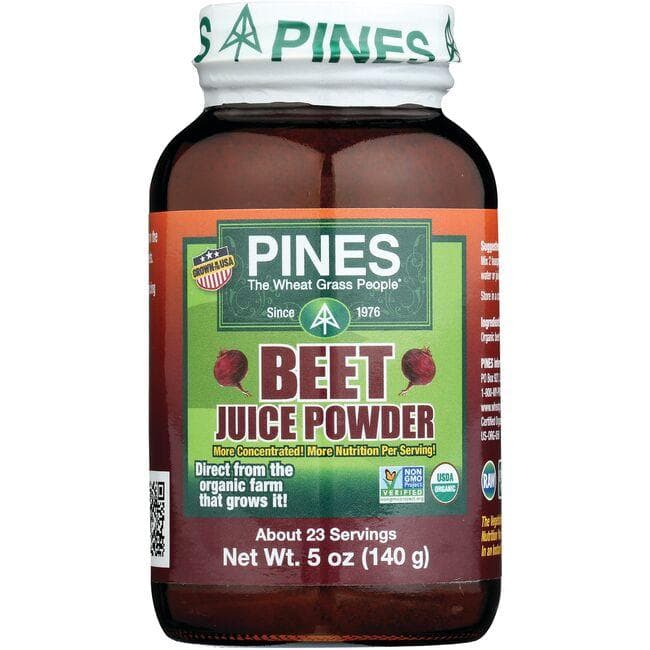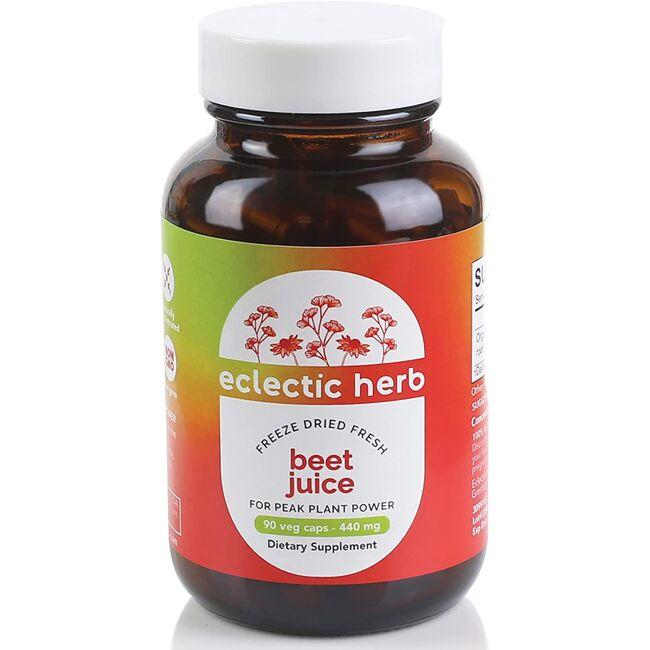The health benefits of beetroot powder (and juice) are far-reaching and critical to staying healthy. And there are some brain benefits! You have probably heard about beetroot as the newest superfood. It’s one of the purple fruits and vegetables that are known to have high levels of antioxidants. Purple carrots, purple sweet potatoes, red cabbage, eggplant, and red grapes are examples of other purple fruits and vegetables. Today the focus is on beetroot.
 Beets contain especially high levels of nitrates, which convert to nitric oxide (NO) in the blood. This is very good for the cardiovascular system and increasing oxygen delivery throughout the body. We’ll get into this more later.
Beets contain especially high levels of nitrates, which convert to nitric oxide (NO) in the blood. This is very good for the cardiovascular system and increasing oxygen delivery throughout the body. We’ll get into this more later.
People have a love/hate relationship with this hearty, sweet root. You either love or hate the flavor and texture. More palatable forms have been developed to make it easier for you to take advantage of all its amazing health benefits. Let’s talk about it.
Beetroot – The Basics
Beetroot (Beta vulgaris) is a root vegetable also known as red beet, table beet, garden beet, or simply beet. Beets are loaded with vitamin C, B vitamins, iron, magnesium, manganese, potassium, iron, zinc, copper, selenium, and many phytonutrients like betalains and nitric oxide. It even provides some fiber (Bjarnadottir, 2019).
Betalains, which give it its bright red color, is used as a natural food pigment and have their own health benefits. It is thought to seek out free radicals and get rid of unstable cells in the body, a cancer-causing type of cell. So it might help prevent cancer as well.
What makes beetroot especially effective in delivering nitric oxide (NO) is it is so easily absorbed by the body. The real value of any food source or supplement is its ability to be absorbed and fulfill its purpose so you reap the benefits. Plus it’s a great antioxidant!
Lowers Blood Pressure
The high level of nitrates in beetroots becomes available in the body to convert to nitrites, making them available to make nitric oxide (NO). NO helps relax and widen blood vessels, making it easier for blood to flow (Borghi and Cicero, 2016). NO makes the arterial system run smoother.
People who drink about 8 ounces of beet juice daily are shown to reduce both systolic and diastolic blood pressure (McDermott [Healthline], 2020). In my research, every study that discusses beetroots mentions this blood pressure lowering benefit.
High blood pressure can cause strokes and heart attacks. If you have moderately high or high blood pressure, see if beetroot powder helps lower yours.
Related Article: Grape Seed Extract Benefits
May Help Increase Blood Flow to the Brain, Slowing Cognitive Decline
 There have been several studies regarding the benefits of nitrates in the diet and improved brain function. One in particular from 2011 included older people who had MRIs of the brain done after having consumed a high-nitrate diet that included beetroot juice. Their brain imaging showed increased blood flow in the frontal lobes.
There have been several studies regarding the benefits of nitrates in the diet and improved brain function. One in particular from 2011 included older people who had MRIs of the brain done after having consumed a high-nitrate diet that included beetroot juice. Their brain imaging showed increased blood flow in the frontal lobes.
The frontal lobes are associated with cognitive thinking and behavior.
Everyone loses some nitric oxide (NO) in their body as they grow older. Eating or drinking beetroot powder can help replenish those stores and enhance better circulation in the brain and extremities.
Improves Exercise Stamina and Muscle Strength
Several studies on beetroot powder and physical performance show nitrates reduce the oxygen used by the body during physical exercise make the mitochondria more efficient. Mitochondria are responsible for producing energy (Bjarnadottir, 2019).
One study showed the trained cyclists who drank two cups of beet juice daily took 12 seconds off their 10-kilometer time trial. And they reduced their maximum oxygen output too (Arnarson, 2020).
Powder or Capsule – Where To Get Beetroot Powder
If you want to mix it into smoothies or just mix with water or juice, this organic beet juice powder will easily mix into your juice, water, or smoothie for a great boon to your energy and health.
If you’d rather have the convenience of a capsule form, this is a very popular and quality choice:
Where We Are Now
As we’ve seen, beetroot powder is Loaded with nutrients and nitric oxide, making it a great all-around supplement to add to your smoothies or supplement routine. I’ve been using beetroot powder for about a month and I do notice a difference in my energy levels.
If you’re looking to improve your blood pressure or want to help your brain health, beetroot powder is a no brainer (no pun intended).
If you have any questions, comments, or experience with beetroot, please share in the Comments section below. Your email will not be visible to other readers. Thank you for reading today!
References:
Arnarson, A. (2020). 11 Health Benefits of Beet Juice. Retrieved May 16, 2021 from Beet Juice: 11 Health Benefits From Blood Pressure to Cholesterol (healthline.com)
Babateen AM, Rubele S, Shannon O, et al. Protocol and recruitment results from a 13-week randomized controlled trial comparing the effects of different doses of nitrate-rich beetroot juice on cognition, cerebral blood flow and peripheral vascular function in overweight and obese older people. Contemp Clin Trials Commun. 2020;18:100571. Published 2020 Apr 25doi:10.1016/j.conctc.2020.100571
Bjarnadottir, A. (2019). Beetroot 101: Nutrition Facts and Health Benefits. Retrieved May 16 from Beetroot 101: Nutrition Facts and Health Benefits (healthline.com)
Borghi, C. and Cicero, A. (2016). Nutraceuticals with a clinically detectable blood pressure‐lowering effect: a review of available randomized clinical trials and their meta‐analyses. Retrieved May 16, 2021 from Nutraceuticals with a clinically detectable blood pressure‐lowering effect: a review of available randomized clinical trials and their meta‐analyses – Borghi – 2017 – British Journal of Clinical Pharmacology – Wiley Online Library
Clifford T, Howatson G, West DJ, Stevenson EJ. The potential benefits of red beetroot supplementation in health and disease. Nutrients. 2015;7(4):2801-2822. Published 2015 Apr 14. doi:10.3390/nu7042801







I love this article, presentation is wonderful!
Thank you so much. Thanks for reading. 🙂
I am happy reading that beetroot powder can help with blood flow to different areas of the brain because I have Temporal Lobe Epilepsy and I also have celiac disease causing malabsorption, so I can’t absorb the nutients I need. So now I’ll get some beet powder and I believe in a number of weeks I’ll be able to focus on things I need and want to do. Thank you for enlightening me!
Hi Paula, I use Beetroot in my family’s nutritional menu as juice, soup, salads, baked, steamed, or boiled. I knew that beetroot is a healthy food with many benefits. Reading your article, I inform more about them, confirming the good impact it has on our organism and the necessity I have to eat and use it. It is good that we can use it in powder or capsules to benefit daily.
Thank you for sharing this helpful information.
Alketa
I’m so glad you are already using it in your diet. 🙂 Thanks so much for reading and commenting today.
Beetroot has amazing beneficial properties that can do so much for our health, this all naturaL plant can do so much for our bodies and the good news is that with this product there are no side effects. I believe that we should add this product to our diet to maintain the benefits. It is so good to know that there are vitamins and nutrients in beetroot powder.
It really is amazing and so good for you. Thank you for reading and leaving a comment, Norman!